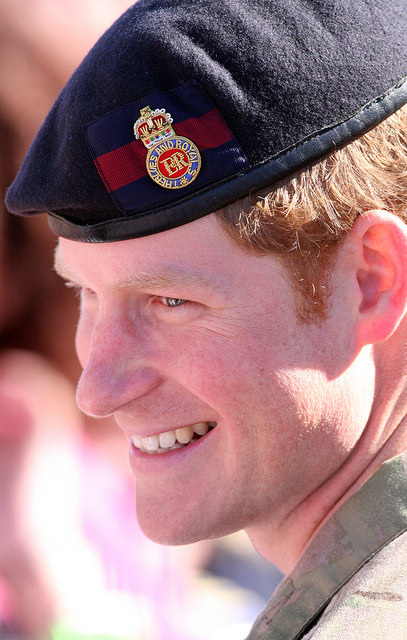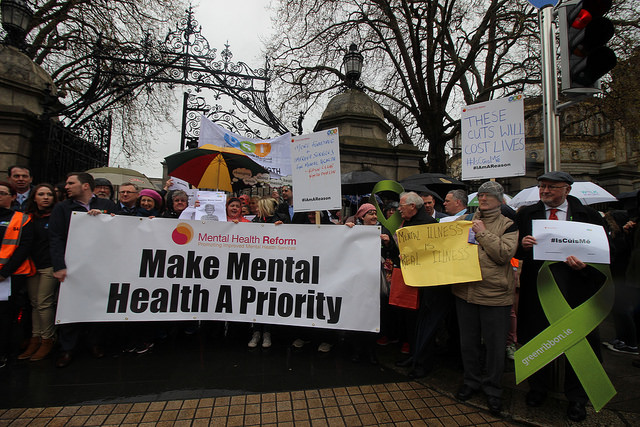Prince Harry Reveals He Underwent Counseling to Deal With Grief Over Mother's Death
By:
Prince Harry opened up about seeking counseling years after his mother's death—the tragic car accident in 1997 that killed Princess Diana of Wales and thrust the then-12-year-old into the public eye.
The inaugural episode of Bryony Gordon's podcast "Mad World" is taglined "why it's perfectly normal to feel weird," and deals with the tribulations and stigmas faced by those struggling with mental health.
In the nearly two decades since his mother's death, the young prince said he "shut down all his emotions" in an attempt to distance himself from the pain he felt. But his strategy of "sticking his head in the sand" didn't work for long. The prince told Gordon, "And then [I] started to have a few conversations and actually all of a sudden, all of this grief that I have never processed started to come to the forefront and I was like, there is actually a lot of stuff here that I need to deal with."
 Eva Rinaldi - flickr.com
Eva Rinaldi - flickr.com
Prince Harry's means of dealing with the trauma was two-fold. He both sought counseling, and took up boxing saying "that really saved me because I was on the verge of punching someone, so being able to punch someone who had pads was certainly easier."
On counseling, the prince told Gordon, “I’ve done that a couple of times, more than a couple of times, but it’s great.”
Harry wants to use his experience to help others seek the help they need.
 Global Panorama - flickr.com
Global Panorama - flickr.com
According to the Telegraph, Prince Harry's decision to speak about his struggles is no accident: "Prince Harry has decided to give an unprecedented insight into his past in the hope it will encourage people to break the stigma surrounding mental health issues." He's even set up a charity endeavor called "Heads Together" with his brother and sister-in-law, The Duke and Duchess of Cambridge. The charity means to promote mental well-being. Speaking about that goal, Harry said “What we are trying to do is normalize the conversation to the point where anyone can sit down and have a coffee and just go ‘you know what, I’ve had a really s--- day, can I just tell about it? Because then you walk away and it’s done.”
But the stigma surrounding counselling—and mental health in general—is remarkably persistent.
Despite efforts by other luminaries like Michelle Obama and other luminaries, the fight to destigmatize mental health issues has faced serious roadblocks, regardless of the fact that mental illness is exceedingly common. One in five adults will experience mental illness in a given year. Our media, films and social experiences all lead people to avoid seeking help for their mental health problems. And this can have serious consequences for the mentally ill. According to a 2004article in American Psychologist, a journal, "to avoid the label of mental illness and the harm it brings, people decide not to seek or fully participate in care."
 Sinn Féin - flickr.com
Sinn Féin - flickr.com
The stigma is changing.
As more people learn the tools to talk about mental health, and learn that it's—as Gordon's podast puts it—"perfectly normal to feel weird," more adults will feel empowered to seek the help they need.
